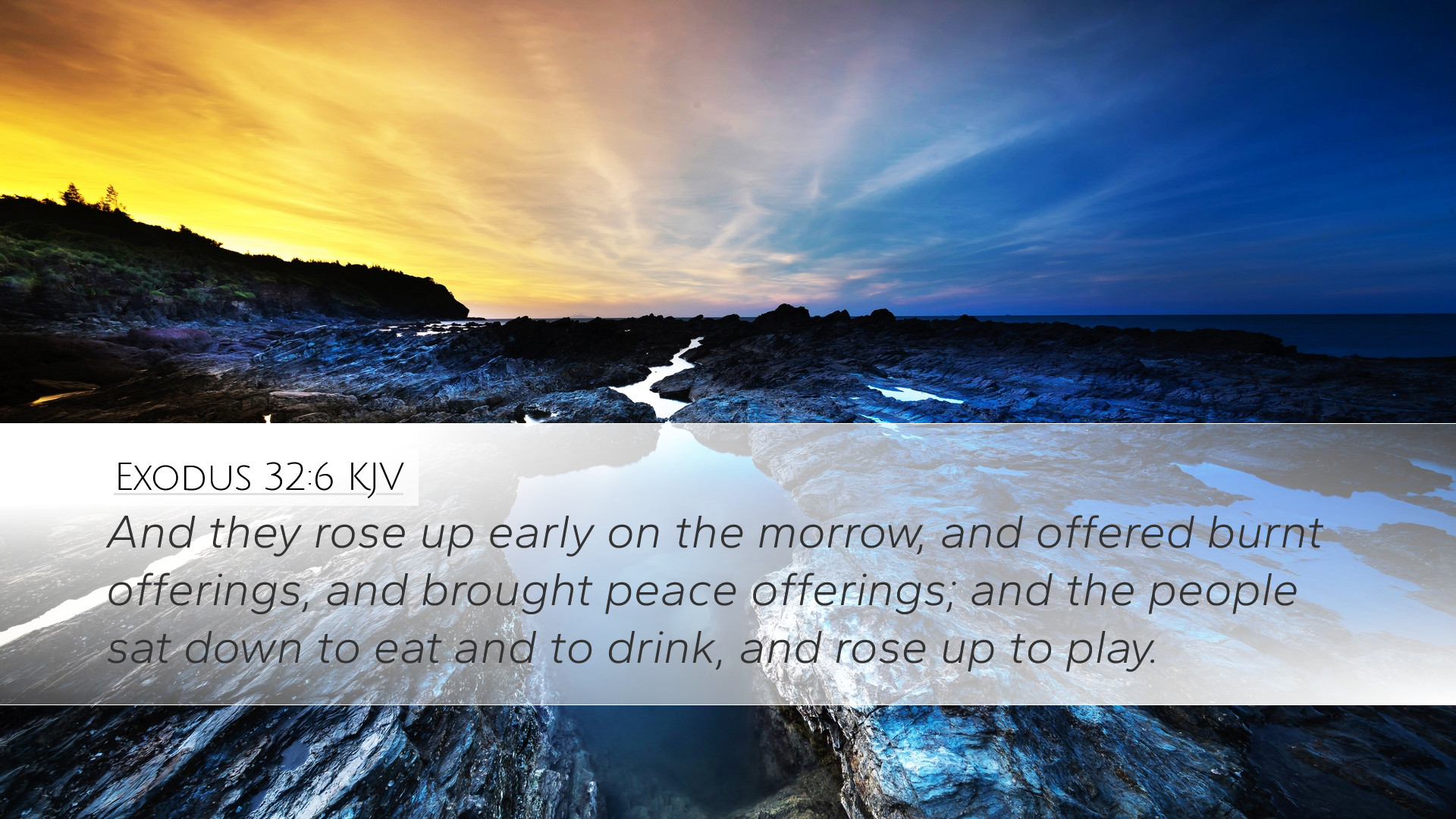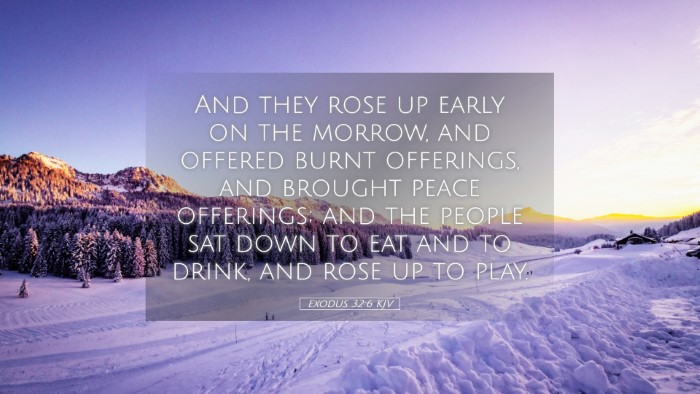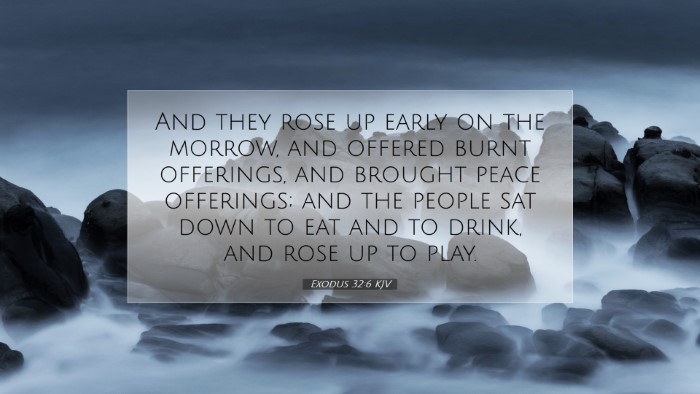Commentary on Exodus 32:6
Exodus 32:6 states, "And they rose up early on the morrow, and offered burnt offerings, and brought peace offerings; and the people sat down to eat and to drink, and rose up to play."
Introduction
This verse marks a significant moment in the narrative of the Exodus, portraying the people's response to the absence of Moses on Mount Sinai. It reveals the shift from divine worship to idolatrous celebration and ultimately illustrates the dangers of turning away from God.
Contextual Background
Prior to this verse, Moses had ascended the mountain to commune with God. Meanwhile, the Israelites, feeling abandoned, created a golden calf to worship. This incident captures a broader theological lesson regarding the nature of idolatry and human tendency to stray from God in times of uncertainty.
Insights from Matthew Henry
- Henry emphasizes that the Israelites' actions demonstrate a profound impatience and lack of faith. In their moment of desperation, they resorted to external idols rather than trusting in the God who had delivered them from Egypt.
- He points out that their early rising to offer sacrifices indicates a fervor in their rebellion, showing how easily they shifted from worshiping Yahweh to engaging in pagan rituals.
- Henry discusses the phrase "rose up to play," interpreting it as a depiction of not only revelry but also a sensual celebration that included immorality, highlighting the moral decline that accompanies idolatry.
Insights from Albert Barnes
- Barnes notes that the people's offerings demonstrate a desire to maintain a semblance of worship despite their idolatry. This indicates that even in rebellion, humans have a propensity to seek divine favor.
- He suggests that the term "burnt offerings" signifies an attempt to appease God through rituals, showcasing humanity's misguided understanding of worship.
- Barnes elaborates on the sociological aspect, arguing that the collective action of the people in offering these sacrifices reveals the power of group influence in leading individuals away from true faith.
Insights from Adam Clarke
- Clarke interprets "rose up to play" as reflective of unrestrained behavior, suggesting that this revelry was not merely innocent celebration but a deeper lapse into idolatry and immorality.
- He points out that this incident starkly contrasts with the solemnity of the worship God desired, thus showcasing how the people deviated from God's commandments.
- Clarke also emphasizes the consequences of such actions, forewarning that turning away from God leads to judgment, a theme recurrent throughout Scripture.
Theological Implications
The narrative illustrates profound truths about human nature. Pastors and theologians can draw upon this text to reflect on themes such as:
- Idolatry: This incident serves as a reminder of the continuous struggle against idolatry in various forms, urging believers to examine what they prioritize over God.
- Patience and Waiting on God: The Israelites’ impatience was rooted in their lack of faith. This serves as a call for believers to trust God’s timing.
- Corporate Influence: The collective actions of the people highlight the need for church leaders to understand the dynamics of community in shaping faith practices.
- The Consequences of Sin: This passage warns of the potential fallout when God's people stray from His commandments, emphasizing the importance of repentance and return to God.
Conclusion
Exodus 32:6 provides a rich tapestry of insights into the character of God, human sinfulness, and the dynamics of faith. Through the commentaries of Henry, Barnes, and Clarke, we gain a better understanding of the complexities of this narrative and its relevance for contemporary faith communities. It invites deep reflection on our commitments and the continual need to hold fast to God even amid life's uncertainties.


